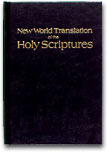
I have always been of the impression that Satan and his demons would be forcefully ejected from the heavens at the beginning of the last days. Is this correct? If not, when does this occur? I have been reading and re-reading Revelation 7:1-17 and it appears that it is possible that this is actually the first piece of "business" once the kingdom has been established in the heavens following the "martyrdom" of the holy ones.
The reason I have drawn this conclusion is some wording in this chapter of God's Word. Chapter 12 verses 8-9 describe the battle and its outcome. Verse 10 announces the actual coming to power of the kingdom and verse 11 tells us who defeats the Devil and his demons. It says "And they conquered him because of the blood of the Lamb and because of the word of their witnessing, and they did not love their souls even in the face of death. This seems to imply that this battle happens after Satan has dispatched of the remnant of the "holy ones" on earth and after they have been resurrected to the heavens. Is this correct? And if not, could you please explain?
If I am correct in my assumption above who are the "remaining ones of her seed" that the dragon goes off to wage war with in verse 17? I look forward to your answer.
The ouster of Satan and the demons takes place after Jesus is given his kingdom. However, the 12th chapter of Revelation reveals that there are actually two separate war campaigns that immediately follow the establishment of the kingdom. First, Satan and his demons wage a furious but losing battle against Michael and his angels and are subsequently thrown down from heaven to the lower regions of our earthly sphere. Once confined to the earthly realm the demons then go off to wage war with the remaining sons of the kingdom – that is the second phase of the war.
As for the duration of the war against the holy ones, the 11th and 12th chapters of Revelation, as well as the 7th chapter of Daniel, indicate that God allows a specific period of three and one half years for holy ones to be persecuted and eventually martyred. That period of time is designated as the “time of the end.”
Of course, Jehovah's Witnesses believe that the war in heaven has taken place already; however, e-watchman presents numerous reasons why that cannot be the case.



